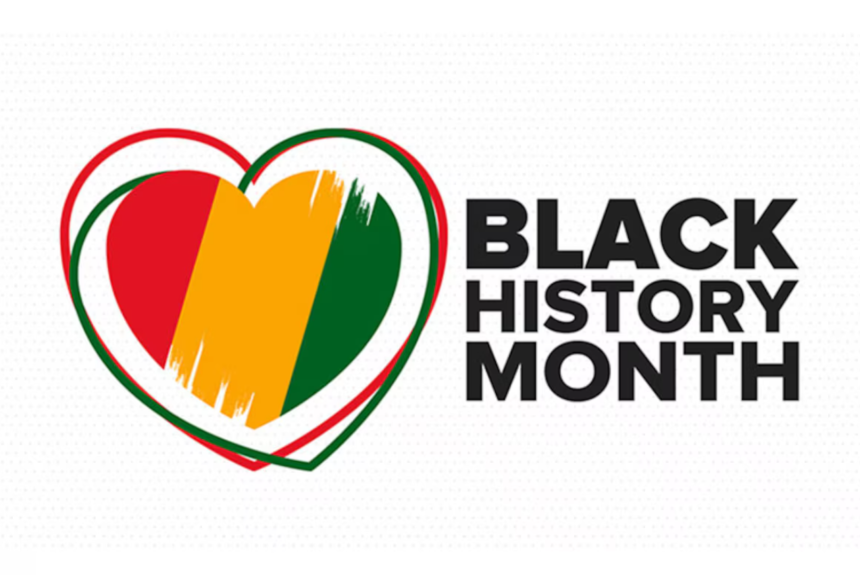Black History Month is a time dedicated to honoring the achievements, struggles, and rich cultural heritage of African Americans throughout history. It serves as a moment of reflection and education, providing an opportunity to delve deeper into the stories that have shaped the United States and the world. If you’re looking to learn more or engage in a fun and educational activity, participating in Black History Month trivia is a fantastic way to celebrate and expand your knowledge about the countless contributions made by Black individuals and communities.
The Origins of Black History Month
Black History Month—originally conceived as “Negro History Week”—was established in 1926 by historian Carter G. Woodson and the Association for the Study of Negro Life and History (ASNLH). Woodson chose the second week of February to coincide with the birthdays of Abraham Lincoln and Frederick Douglass, two figures who were instrumental in advancing the rights of African Americans. It wasn’t until 1976 that Black History Month was officially recognized across the United States, marking a milestone in celebrating Black history on a national level.
Woodson’s vision was rooted in the belief that African American history—and by extension, African American contributions—should not be relegated to the sidelines of American history. He argued that understanding and acknowledging Black achievements were essential for fostering a more equitable and inclusive society. This vision continues to resonate today, with Black History Month celebrated in schools, workplaces, and communities across the United States, as well as in Canada, the United Kingdom, and other countries.
Key Figures in Black History
Understanding Black history requires learning about the remarkable individuals who have left an indelible mark on society. Here are just a few noteworthy figures:
- Harriet Tubman – Known as the “Moses” of her people, Tubman escaped slavery and led hundreds of enslaved individuals to freedom via the Underground Railroad. Her bravery and resilience continue to inspire generations. Tubman also served as a spy and nurse during the Civil War, showcasing her dedication to liberation and equality in multiple facets of her life.
- Martin Luther King Jr. – A central figure in the Civil Rights Movement, King’s powerful speeches and nonviolent protests, such as the March on Washington, played a crucial role in challenging systemic racism and achieving civil rights reforms. His famous “I Have a Dream” speech remains a timeless call for justice and equality, reminding us of the ongoing need to address racial disparities.
- Rosa Parks – Often referred to as the “mother of the civil rights movement,” Parks’ refusal to give up her bus seat to a white man in Montgomery, Alabama, sparked the Montgomery Bus Boycott and propelled the fight for racial equality. Her quiet act of defiance demonstrated the power of individual courage in challenging injustice.
- Maya Angelou – A celebrated poet, author, and civil rights activist, Angelou’s works, such as I Know Why the Caged Bird Sings, have become timeless reflections on identity, resilience, and the Black experience. In addition to her literary achievements, Angelou was a singer, dancer, and actress, showcasing the breadth of her talents.
- Barack Obama – As the first Black president of the United States, Obama’s election in 2008 represented a significant moment in American history, inspiring hope and change for millions. His presidency highlighted the importance of representation and the power of perseverance in breaking barriers.
- Frederick Douglass – Born into slavery, Douglass escaped and became one of the most influential abolitionists, orators, and writers of the 19th century. His autobiographies, such as Narrative of the Life of Frederick Douglass, an American Slave, offer powerful insights into the realities of slavery and the struggle for freedom.
- Madam C.J. Walker – Widely regarded as the first self-made female millionaire in the United States, Walker built a successful business empire by creating and marketing hair care products for Black women. Her legacy extends beyond entrepreneurship; she was also a philanthropist and activist who supported numerous social causes.
Trivia to Test Your Knowledge
Engaging in Black History Month trivia is not only fun but also an enlightening way to uncover fascinating facts. Here are some trivia questions and answers to challenge yourself or use in a group setting:
Question 1: Who was the first African American to win an Academy Award?
Answer: Hattie McDaniel became the first African American to win an Academy Award for her role as Mammy in Gone with the Wind (1939). Her achievement broke barriers in Hollywood, though it also highlighted the limited roles available to Black actors at the time.
Question 2: What landmark Supreme Court case declared segregation in public schools unconstitutional?
Answer: Brown v. Board of Education (1954) overturned the “separate but equal” doctrine and mandated the desegregation of schools. This pivotal case laid the groundwork for the Civil Rights Movement and underscored the importance of equal educational opportunities.
Question 3: Who is known as the “Father of Black History”?
Answer: Carter G. Woodson earned this title for his efforts in promoting Black history and establishing Negro History Week. His dedication to documenting and celebrating Black contributions to history set the foundation for what would become Black History Month.
Question 4: What event is often considered the starting point of the modern Civil Rights Movement?
Answer: The Montgomery Bus Boycott (1955-1956), sparked by Rosa Parks’ arrest, is seen as a pivotal moment in the movement. The boycott’s success demonstrated the power of collective action and the resolve of the African American community.
Question 5: Who was the first Black woman elected to Congress?
Answer: Shirley Chisholm, elected in 1968, broke barriers as the first Black congresswoman and later ran for president in 1972. Her campaign slogan, “Unbought and Unbossed,” reflected her commitment to advocating for marginalized communities.
Exploring Lesser-Known Stories
While many figures and events in Black history are widely celebrated, there are countless lesser-known stories worth exploring. For example:
- Bessie Coleman became the first African American woman to earn a pilot’s license in 1921, paving the way for future aviators. Despite facing racial and gender discrimination, Coleman’s determination led her to train in France, where she achieved her dream.
- The Greensboro Four, a group of college students, initiated a series of sit-ins at segregated lunch counters in 1960, igniting a wave of nonviolent protests across the South. Their courage inspired a broader movement for desegregation in public spaces.
- Robert Smalls, an enslaved man, commandeered a Confederate ship during the Civil War and delivered it to Union forces, later becoming a U.S. Congressman. His story exemplifies bravery and the pursuit of justice in the face of adversity.
Black History in Culture and Innovation
Black history is deeply intertwined with cultural and scientific achievements that have shaped modern life. Consider these examples:
- Music and Arts: The Harlem Renaissance of the 1920s was a cultural explosion that saw the rise of legendary artists like Langston Hughes, Duke Ellington, and Zora Neale Hurston. This period celebrated Black creativity and intellectualism, leaving a lasting impact on American culture.
- Science and Technology: Innovators like George Washington Carver revolutionized agriculture with his work on crop rotation and alternative uses for peanuts. More recently, NASA mathematician Katherine Johnson’s calculations were pivotal to the success of early space missions. Her contributions, along with those of Mary Jackson and Dorothy Vaughan, were highlighted in the film Hidden Figures.
- Sports: Jackie Robinson broke Major League Baseball’s color barrier in 1947, while athletes like Serena Williams and LeBron James continue to inspire on and off the field. Robinson’s courage and talent paved the way for greater inclusion in professional sports.
Celebrating Black History Month Today
Today, Black History Month is celebrated through various events, educational programs, and artistic expressions. Schools, museums, and community organizations host activities that encourage people of all ages to engage with Black history. Whether through trivia nights, film screenings, or panel discussions, there are countless ways to participate.
Social media platforms also play a significant role in spreading awareness and sharing stories during Black History Month. Hashtags like #BlackHistoryMonth and #BHM allow individuals and organizations to highlight achievements, share resources, and foster conversations about Black history and culture.
Additionally, supporting Black-owned businesses, reading works by Black authors, and amplifying Black voices on social media are meaningful actions that align with the spirit of the month. By making intentional choices to uplift and celebrate Black communities, individuals can contribute to a broader movement of recognition and inclusion.
Why Black History Month Matters
Black History Month is more than just a time to remember the past; it’s a call to action. It reminds us of the ongoing struggles for equality and justice while celebrating the resilience and achievements of Black communities. By educating ourselves and others, we contribute to a more inclusive and equitable society.
The lessons of Black history are not confined to February; they are relevant year-round. Understanding the contributions and challenges of African Americans enriches our collective history and fosters empathy and unity. In a world still grappling with racial disparities, Black History Month serves as a beacon of hope and a reminder of the progress yet to be made.
Fun Ways to Incorporate Trivia into Your Celebrations
To make Black History Month trivia more engaging, consider these ideas:
- Host a Trivia Night: Organize a friendly competition with friends, family, or colleagues. Include questions from various categories like history, culture, sports, and science. Encourage participants to research and share additional facts to deepen the discussion.
- Incorporate Technology: Use quiz apps or create online polls to make trivia accessible to a broader audience. Platforms like Kahoot or Quizlet allow for interactive and customizable trivia experiences.
- Themed Prizes: Offer books by Black authors, gift cards to Black-owned businesses, or donations to relevant charities as prizes. This not only adds excitement but also supports the celebration’s broader mission.
- Engage with Schools and Communities: Collaborate with local schools, libraries, or community centers to host trivia events. Involving students and educators can create a dynamic learning environment that benefits all participants.
Closing Thoughts
Black History Month trivia is an enriching way to connect with history, spark meaningful conversations, and celebrate the remarkable achievements of African Americans. Whether you’re exploring well-known figures or uncovering hidden stories, each piece of trivia deepens your appreciation for the vibrant tapestry of Black history.
By participating in Black History Month trivia and related activities, we not only honor the past but also inspire future generations to continue the legacy of resilience, innovation, and progress. Let this month be a catalyst for ongoing learning and action, reminding us that Black history is American history, and its lessons belong to us all.














